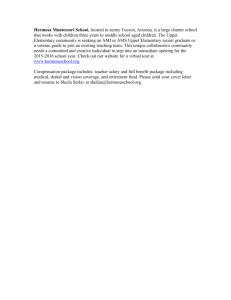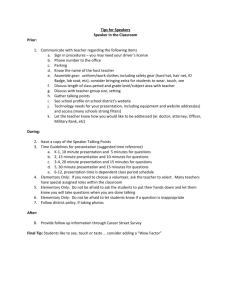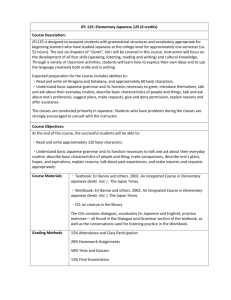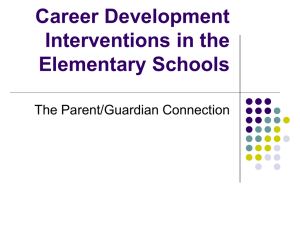When To Start, How To Learn
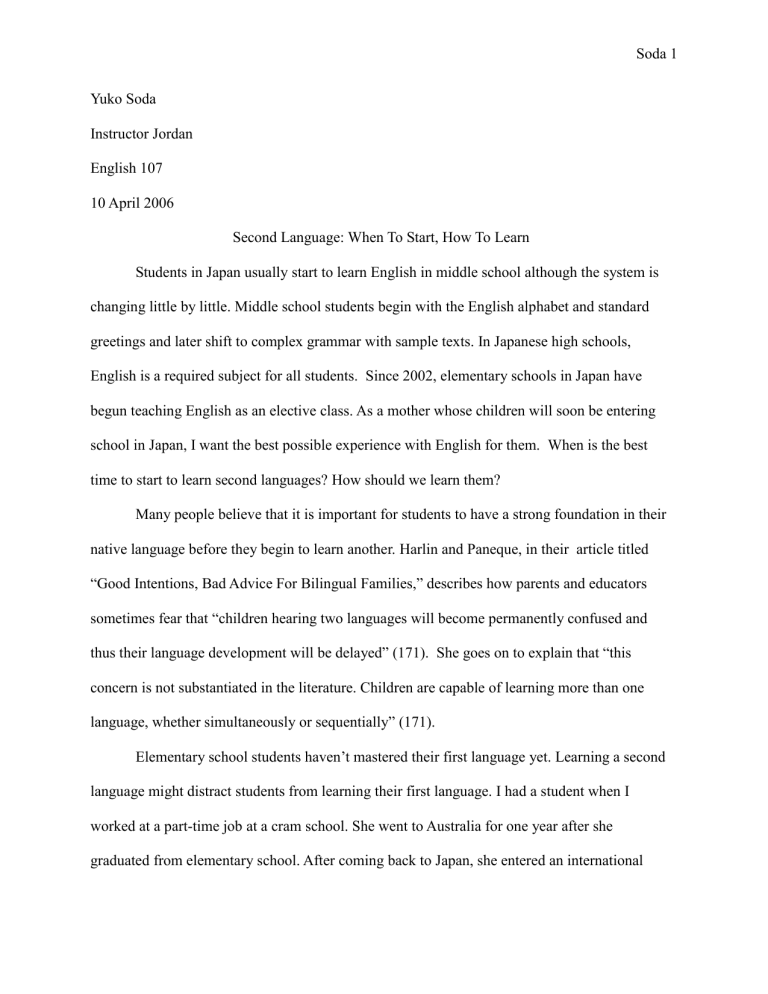
Soda 1
Yuko Soda
Instructor Jordan
English 107
10 April 2006
Second Language: When To Start, How To Learn
Students in Japan usually start to learn English in middle school although the system is changing little by little. Middle school students begin with the English alphabet and standard greetings and later shift to complex grammar with sample texts. In Japanese high schools,
English is a required subject for all students. Since 2002, elementary schools in Japan have begun teaching English as an elective class. As a mother whose children will soon be entering school in Japan, I want the best possible experience with English for them. When is the best time to start to learn second languages? How should we learn them?
Many people believe that it is important for students to have a strong foundation in their native language before they begin to learn another. Harlin and Paneque, in their article titled
“Good Intentions, Bad Advice For Bilingual Families,” describes how parents and educators sometimes fear that “children hearing two languages will become permanently confused and thus their language development will be delayed” (171). She goes on to explain that “this concern is not substantiated in the literature. Children are capable of learning more than one language, whether simultaneously or sequentially” (171).
Elementary school students haven’t mastered their first language yet. Learning a second language might distract students from learning their first language. I had a student when I worked at a part-time job at a cram school. She went to Australia for one year after she graduated from elementary school. After coming back to Japan, she entered an international
Soda 2 school and learned everything in English. When I taught her at the cram school, she was in the third grade of junior high school. She could speak Japanese very well, of course, but she couldn’t translate many words into Japanese because she had learned them only in English. The same problems could happen to students who start to learn second languages too early.
However, elementary school students are also at the age for learning languages effectively and quickly.
On the other hand, middle school students have almost completed a grammar system of their first language. In this case, the grammar system of the first language may influence the students’ learning of a second language. Although students who start to learn other languages at an early age learn them almost from nothing, those who start to learn other languages after mastering their first languages have to replace the first language with a new language.
How to learn second languages depends on when we start to learn them. There are four skills we need to master: speaking, listening, writing, and reading. When we learn the first language, we start with listening and speaking. We hear what people around us say and come to use it by imitating it. If we start to learn a second language in elementary school or before, we should start with listening and speaking as we learn the first language because we are still in the best age to master languages. But if we start to learn second languages in middle school, we may need to be taught more grammatically. The balance between listening and speaking and grammar is important in teaching languages. It pretty much depends on a learner’s ability. It is good to learn more grammatically for people whose ability is high because they can apply one rule to another. However, people whose ability is relatively low need to learn by repeating several times.
My Chinese friend, Yang-Dai, Hong said, “I think it’s good because, you know, it is easy
Soda 3 for children to learn second languages, but it is hard for adults to learn second languages. But don’t give children much pressure because their interests are more important.” According to her, in China, students start to learn English at elementary school and learn it until middle schools. It is mandatory and called the nine year system. If they can’t get enough years of language in middle school, they can’t go to high school. She also said that the system should be changed because many students cannot speak even though they have high a score on the TOEFL or G-
MAT.
The Japanese education system also has the same trouble. There are many differences between their reading and writing skills and listening and speaking skills. Since the Japanese education system has made much of written language and grammar, students tend to be poor at listening and speaking, especially speaking. But now the Ministry of Education is trying to change it; they are making much of listening and speaking. For example, the Ministry issued
“ Eigoga tukaeru nihonjin ikuseinotameno senryakukousou”
(The strategy to make Japanese who can use English). The Ministry notices many Japanese students cannot use English well despite spending a lot of time learning English. Listening tests have been taken into the united entrance exam of universities. The Ministry also changed the teaching guidelines so that students can learn more listening and speaking skills. There are strong connections between when to start to learn second languages and how to teach them.
In Korea and Taiwan, like China, students start to learn study English in elementary school.
They advanced the starting time from middle schools to elementary school recently. My Korean friend, Kami, said, “I prefer teaching at elementary schools.” She herself started to learn English in middle school. My Taiwanese friend, Kang, has the same opinion as Kami. She said that if we start to learn at elementary school, we can acquire more language than in middle school. She
Soda 4 also started to learn English in middle school, but actually her mother let her go to a cram school to learn English before that. Like Kang, many Japanese, Korean, and Taiwanese students go to cram schools to learn English these days. My cousin went to a preschool whose teachers were all native speakers of English. The situations seem to be quite similar in these Asian countries; the parents try to make their children learn English from their earlier ages as competitions.
When to start to learn second languages and how to learn them depends on the learner. In general, though, people seem to be able to learn second languages more easily when they start to learn at early ages such as elementary school or before. At least in Korea, Taiwan and Japan, it is becoming a strong trend for parents to make their children study English from earlier ages.
Works Cited
Harlin, Rebecca and Oneda M. Paneque. “Good intentions, bad advice for bilingual families.”
Childhood Education 82.3 (Spring 2006): 171-174.
Hsu, Kang. Personal interview. 6 April 2006.
Kim, Kami. Telephone interview. 6 April 2006.
Yang, Dai-hong. E-mail to the author. 6 April 2006.
